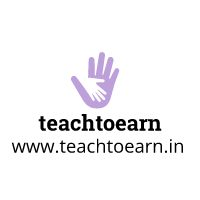
The current education system is failing our children. Schools, designed to produce obedient factory workers, continue to prioritize memorization, discipline, and conformity. While these traits may have once been valuable, they no longer prepare students for success in today’s fast-changing world.
The reality is that children today need to be equipped with creativity, adaptability, and critical thinking. Sadly, the rigid structure of traditional schooling leaves little room for students to develop these essential skills.
If we are serious about giving our children the best possible education, we need to rethink our approach. We need to put students first by giving them autonomy and agency over their learning. One powerful way to achieve this is by starting digital learning pods. These small, community-driven education groups offer a flexible, student-centered learning experience that empowers children to thrive.
Why Autonomy Matters ?
Children are natural learners. From the moment they are born, they experiment, ask questions, and explore the world around them. Unfortunately, most schools suppress this curiosity by enforcing rigid schedules and standardized curriculums. By giving children the freedom to pursue their interests, we empower them to become lifelong learners.
Digital learning pods provide this freedom. Unlike traditional classrooms, pods are flexible, allowing students to manage their own time, set learning goals, and engage in activities they are genuinely passionate about. This autonomy fosters a deeper sense of ownership and motivation, driving students to explore and achieve more.
Free Time to Pursue Interests
In traditional schools, students are often rushed from one subject to the next with little time to reflect, explore, or go deeper into topics they enjoy. Learning pods change this by giving students the free time they need to develop their passions.
For example, a student fascinated by coding can spend hours building software, experimenting with new ideas, and learning from their mistakes. Another student who loves writing may dive into creative storytelling or scriptwriting. By providing students with the freedom to follow their interests, pods unlock creativity and inspire innovation.
Apprenticeships: Learning by Doing
Digital learning PODs encourage students to step outside the classroom and engage with the real world. Apprenticeships offer invaluable opportunities for students to apply their skills, gain hands-on experience, and develop professional connections.
Through apprenticeships, students learn directly from experienced professionals. Whether it’s working with a local graphic designer, assisting in a bakery, or shadowing a software developer, these experiences teach practical skills that traditional schooling often neglects. Real-world learning makes education meaningful, giving students a sense of purpose and direction.
Peer-to-Peer Learning: Growing Together
Peer-to-peer learning is one of the most powerful tools in a pod environment. Unlike traditional classrooms where knowledge is delivered from teacher to student, pods encourage students to learn from one another.
When students collaborate, they develop essential communication, leadership, and teamwork skills. Explaining concepts to peers reinforces their own understanding, while learning from others helps them see different perspectives. This dynamic, interactive approach encourages critical thinking and strengthens problem-solving skills.
Social-Emotional Learning and Socialization
One of the most common concerns about alternative education is socialization. However, learning pods excel in this area by creating close-knit communities where students build meaningful relationships.
In pods, students work in small groups where they engage in discussions, collaborate on projects, and participate in group activities. These experiences foster emotional intelligence, empathy, and resilience. Students learn to manage conflicts, express their feelings, and develop strong social bonds — essential skills for navigating the complexities of adult life.
Mentors, Coaches, and Guides: Learning from Experience
While pods emphasize student independence, guidance from mentors, coaches, and facilitators plays a crucial role in keeping students motivated and on track. Unlike traditional teachers, mentors act as guides rather than enforcers of rigid lesson plans.
Mentors help students identify their strengths, set goals, and develop personalized learning strategies. They provide encouragement, offer feedback, and help students overcome challenges. By acting as trusted allies rather than authority figures, mentors create an environment where students feel safe to experiment, make mistakes, and grow.
Parental Involvement: A Key to Student Success
Unlike traditional schools, digital learning pods encourage active parental involvement. Parents become partners in their children’s education rather than passive observers. This involvement not only strengthens the parent-child bond but also reinforces learning at home.
Parents can contribute by sharing their skills, organizing activities, or simply engaging in discussions about their child’s progress. This active role empowers parents to guide their children towards meaningful educational experiences that align with their interests and goals.
Creating a Future Where Students Thrive
The traditional education system is designed to control students, not empower them. By giving children the freedom to manage their time, pursue their passions, and connect with supportive mentors and peers, digital learning pods create a powerful alternative to outdated schooling methods.
Don’t wait for schools to change — take matters into your own hands by starting your own digital learning pod. Your children will not get a second chance! Start your own Teach to Earn Learning Pod today!
